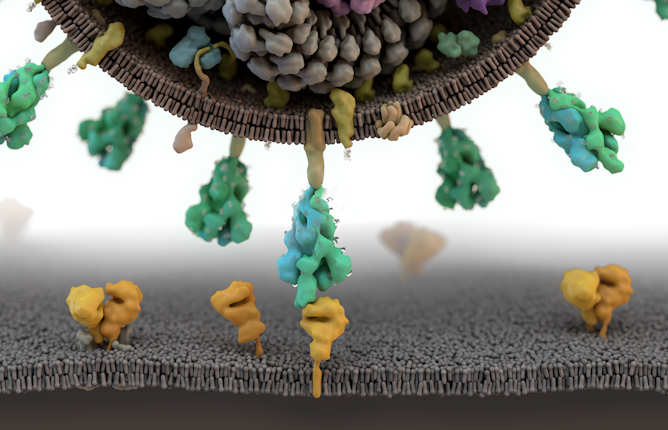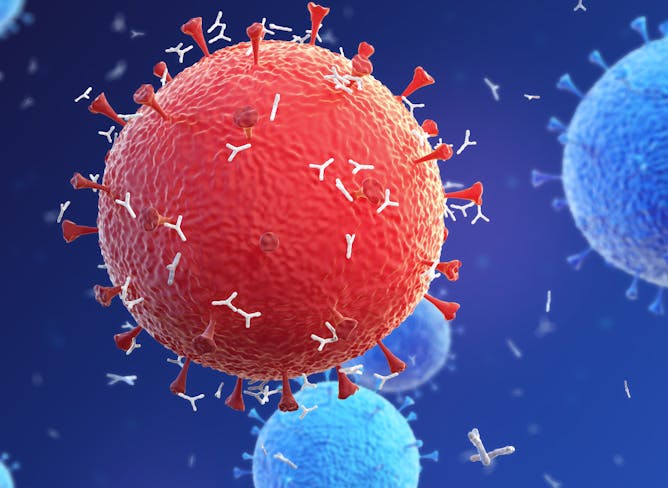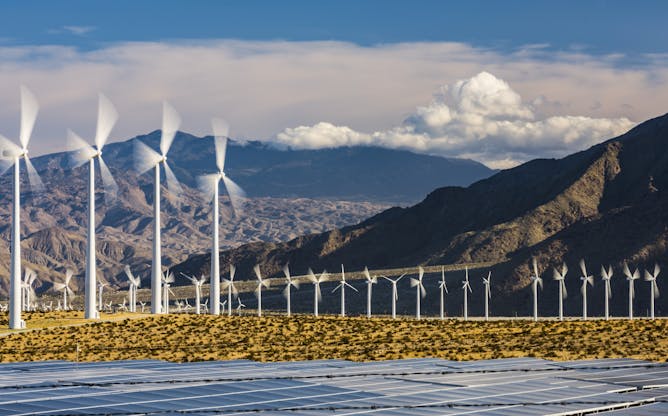|
With thousands of researchers shifting their focus to the pandemic, there’s a huge amount of scientific firepower being applied to COVID-19 – and that includes computing power, too. A molecular biophysicist describes his lab’s work tapping the world’s fastest supercomputer to sift through drug candidates for the disease.
Also in this week’s science and research news, we have articles explaining the potential of antigen testing and antibody treatments, as well as a story on how superconductor materials could make for a more energy-efficient electric grid.
|

It takes a tremendous amount of computing power to simulate all the components and behaviors of viruses and cells.
Thomas Splettstoesser scistyle.com
Jeremy Smith, University of Tennessee
Scanning through billions of chemicals to find a few potential drugs for treating COVID-19 requires computers that harness together thousands of processors.
|

Antibodies are incredibly good at finding the coronavirus. Antigen tests put them to work.
Sergii Iaremenko/Science Photo Library via Getty Images
Eugene Wu, University of Richmond
An antigen test was given emergency use authorization by the FDA in early May. A biochemist explains how COVID-19 antigen tests work.
|

Wind turbines and solar panels in Southern California.
4kodiak/E+ via Getty Images
Pegor Aynajian, Binghamton University, State University of New York
Generating energy usually means wasted heat. Semiconductors let the electrons flow with zero waste – but so far scientists only know how to get them to work at ultra-low temperatures.
|